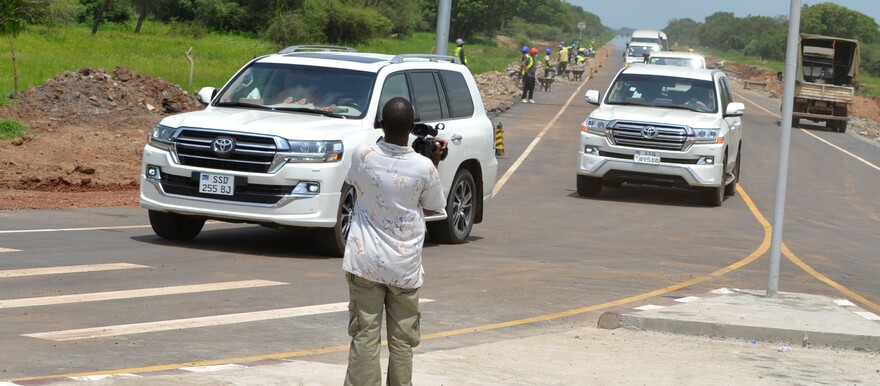South Sudan’s government is struggling to fund the construction of the Juba-Bahr al Ghazal road due to financial constraints, a senior official said.
In 2019, Shandong Hi-Speed, a Chinese company, started constructing 392 kilometres of paved road linking the capital Juba to the Bahr al Ghazal region. The construction of the road from Juba, Terekeka, and Yirol to Rumbek was expected to be completed within 36 months.
The construction of the road started after President Salva Kiir announced that he had allocated 30,000 barrels of crude oil per day to Chinese firms to build roads in the country. It remains unclear whether the crude oil policy for development has been stopped on not.
South Sudan’s economy is almost entirely dependent on the export of oil.
Speaking to reporters during an inspection visit to the Juba-Bahr al Ghazal road on Wednesday, John Kenyi Sasa, the Undersecretary of the Ministry of Roads and Bridges said there are challenges facing timely completion of the road project.
“The first challenge is funding issues. This company started working in 2019 through crude oil for road, but they have not been paid for two years. The crude oil has not been lifted to the company. The company has been using their own resources to help us complete this section [Juba-Terekeka],” he said.
According to the undersecretary, the contractor and the ministry had delayed in completing the Juba-Terekeka road section due to resistance from the local community.
“This section should have finished a long time ago, but we hit a problem with the local communities along this road due to issues of gravels, which took all our time and effort to discuss and agree with them. That is why I mentioned challenges,” he said.
Kenyi pointed out that the Chinese firm has started working on the Terekeka-Yirol section and that the ministry will engage the local communities to agree on the use of local materials.
Meanwhile, SPLM Acting Secretary General Peter Lam thanked the contractor and the ministry for completing the Juba-Terekeka road section. He commended President Kiir for supporting development projects.
Officials from the SPLM party and the Chinese Embassy were part of the delegation that inspected the construction of the Juba-Bahr al Ghazal highway.
Oil backed loans
In May, South Sudan’s Minister of Finance said the government has been unable to pay civil servants for months as the country’s oil revenues are spent servicing oil-backed loans that will not be paid off until 2027.
“The reason why we are not paying the arrears is that the oil is going (towards) the loans which have been taken before,” he said following a visit to the United States. “Where am I going to get the money, if the oil has been sold in advance up to 2027?”




